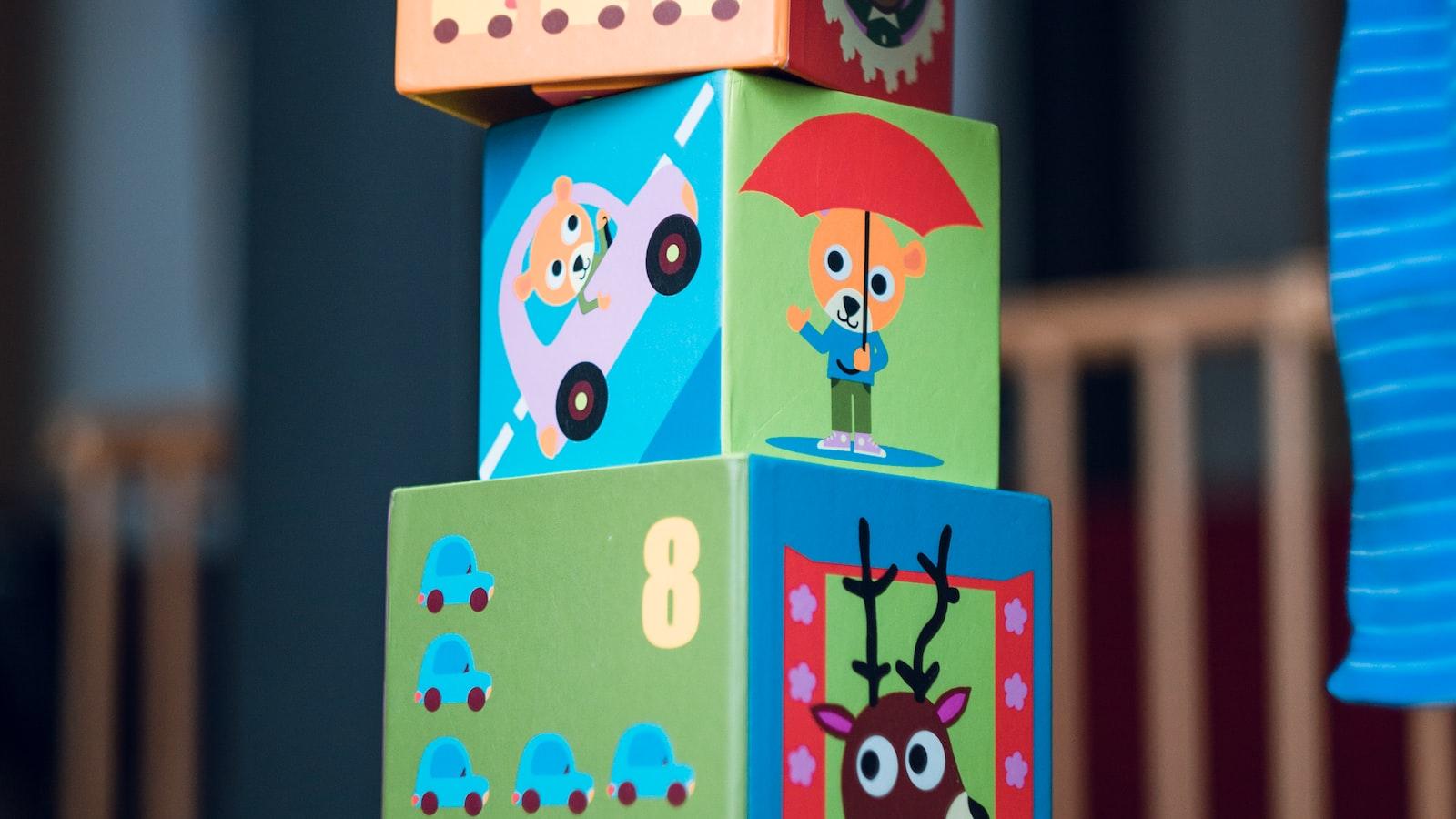Have you ever noticed that your baby chews on their tongue? It might seem like an odd behavior, but it is actually quite common. This behavior is known as tongue chewing and is a normal part of development. It can be a sign of teething or simply a way for your baby to explore their environment. In this article, we will discuss why babies chew their tongue, the potential benefits it has for development, and how to provide comfort if your baby appears to be in distress from this behavior.Babies chew their tongues as a natural reflex action. This reflex is triggered by the baby’s need to explore its environment. As babies begin to develop their sense of taste and touch, they may start to explore their own mouths and use their tongue as a tool. This exploration often involves chewing on their tongue, which can be uncomfortable for the baby but is usually harmless.
What Are the Benefits of Babies Chewing Their Tongue?
Chewing on the tongue is a common behavior in babies. It is a normal way for them to explore their environment, as well as help soothe themselves when they are feeling overwhelmed or upset. It can also be a form of self-comforting behavior. While this behavior can be alarming for parents, there are several benefits associated with it.
One of the main benefits of babies chewing on their tongue is that it helps them to develop their jaw muscles and oral motor skills. Chewing helps to strengthen the jaw muscles and get them ready for eating solid foods. It also helps babies learn how to control their mouth movements, which is important for speech development.
Chewing on the tongue can also help with teething pain. Babies often chew on their tongue when they are in pain due to teething, as it helps to distract them from the discomfort and provide some relief. This can allow parents to provide comfort without having to give medication or other treatments that could have adverse effects on their health.
Finally, chewing on the tongue can help babies learn how to self-soothe themselves in stressful situations. Many babies have a hard time calming down when faced with difficult emotions or situations and being able to chew on their tongue can provide comfort and distraction until they are able to settle down again. This skill will be beneficial for them as they grow older and face more challenging emotions and situations in life.
Overall, chewing on the tongue has several benefits for babies, from helping them develop oral motor skills and strong jaw muscles, providing relief from teething pain, and teaching them how to self-soothe in times of stress or difficulty. While this behavior may seem strange or alarming for parents at first, it can actually provide some valuable developmental benefits for babies that will serve them well throughout life.
Is It Normal for Babies to Chew Their Tongue?
It is very common for babies to chew on their tongue and lips in the first few months of life. This is usually a normal behavior that does not require any medical attention. Babies may chew on their tongues and lips as a way to explore the sensation of their mouths, as well as to soothe themselves when they are feeling uncomfortable or anxious.
It is important to note, however, that if your baby is excessively chewing or biting their tongue, it could be a sign of teething discomfort. If your baby’s tongue chewing becomes excessive and/or painful, you should consult your pediatrician.
Your baby may also start to chew on their tongue when they are teething or have an ear infection. Teething can cause pain and discomfort in the mouth, while an ear infection may cause pain in the jaw area which can cause babies to bite or chew on their tongues and lips as a means of self-soothing.
Finally, it is important to note that excessive tongue chewing can lead to sores in the mouth or damage to the gum tissue if it persists over time. Therefore, if your baby continues to chew on their tongue after several weeks or months, it is best to consult your pediatrician for further evaluation. In some cases, your pediatrician may suggest using a pacifier or other soothing measures such as massage or aromatherapy oils as a way of soothing your baby’s discomfort and helping them stop chewing on their tongues and lips.
Chewing on the Tongue: Possible Problems for Babies
Babies often put their hands and other objects in their mouths as they explore their environment. However, some babies also start to habitually chew on their tongues. This behavior can be concerning for parents, as they may wonder if it can cause problems for the baby.
Chewing on the tongue can cause a baby to gag or even choke on saliva or food particles that have been accidentally introduced into the mouth. It can also cause pain and discomfort in the tongue area due to the pressure of teeth and saliva against delicate tissue. In addition, excessive tongue chewing may lead to damage of the tongue’s surface, resulting in cuts and scrapes that could become infected.
Parents should be aware of any signs of distress that may accompany tongue chewing, such as gagging, choking, or crying. If a baby is found to be excessively chewing on their tongue, it is important to consult with a doctor or dentist about possible causes and possible solutions.
In some cases, babies may be engaging in tongue chewing due to an underlying medical condition such as teething or acid reflux. A doctor or dentist may be able to identify if there is an underlying cause for this behavior and suggest treatments accordingly. If no underlying medical condition is found, then a doctor may suggest avoiding certain foods that could aggravate the problem or providing distraction techniques such as singing songs or playing games during meal time to discourage excessive tongue chewing.
Ultimately, it is important for parents to be aware of any signs of distress associated with tongue chewing so that appropriate action can be taken if necessary. Consulting with a doctor or dentist can help determine whether there are any underlying medical conditions causing this behavior and provide guidance on ways to reduce or stop excessive tongue chewing in babies.
Preventing Babies from Chewing Their Tongue
Babies occasionally develop the habit of chewing on their tongues, which can be concerning for parents. Fortunately, there are steps that parents can take to help prevent their baby from chewing on their tongue. The most important thing to do is to ensure that the baby’s mouth and gums are kept clean and healthy. This means brushing the baby’s gums and teeth with a soft brush at least twice a day. If the baby has already begun to chew on their tongue, it is important for parents to identify any underlying issues that may be causing it. This could include teething pain or an infection in the mouth. Treating these issues can help reduce the urge for babies to chew on their tongue.
Other strategies that parents can use include providing the baby with appropriate teething toys or objects that they can safely chew on instead of their tongue. This also helps reduce any possible pain associated with teething. Additionally, parents should also monitor how much time their baby spends in front of screens, as too much screen time has been linked to increased oral habits such as thumb sucking or tongue chewing.
Finally, parents should also keep in mind that babies may begin chewing on their tongue due to boredom or stress, so it is important for them to provide a stimulating environment for their child and make sure they get adequate sleep and rest throughout the day. By following these tips, parents can help prevent their baby from developing this habit and ensure they have a healthy mouth and gums.

Chewing Tongue in Babies: Is There a Special Diet That Can Help?
Chewing on the tongue is a common behavior among babies and toddlers. It can be an annoying habit and difficult to stop. Fortunately, there are several strategies that parents can use to help their little ones break the habit. One of these strategies is to provide a special diet that can help stop babies from chewing their tongue.
A balanced diet that provides all the necessary nutrients for proper growth and development can help reduce tongue-chewing in babies. A diet rich in fruits, vegetables, proteins, and healthy fats will give babies the energy they need to stay alert and focused throughout the day. Additionally, avoiding sugary foods or drinks may help keep your child’s mouth busy with healthier snacks instead of their tongue.
Another way to help prevent tongue-chewing is to make sure your child gets enough sleep each night. When babies are tired they often resort to sucking or chewing on their tongues as a way of soothing themselves. Ensuring that your little one gets enough restful sleep can help reduce this behavior by giving them an alternative source of comfort when they are feeling sleepy or overwhelmed.
It is also important to provide plenty of sensory stimulation for babies who chew on their tongues. This includes providing interesting toys for them to explore and activities that encourage them to use their hands and mouths in different ways during playtime. The variety of activities will keep them engaged and less likely to resort to chewing on their tongues out of boredom or frustration.
Finally, it is important for parents to remain patient while trying different techniques for stopping this habit in their children. Most importantly, it is essential that parents provide plenty of positive reinforcement when they catch their children not chewing on their tongues so that they learn over time what behaviors are expected from them. With patience and understanding, parents can successfully break this habit in no time at all!
Should Parents Be Concerned About the Baby Chewing Their Tongue?
It is not uncommon for babies to chew on their tongues or put other objects in their mouth. While this may be a normal part of exploring the world, parents should be aware of the potential risks that come with it. Babies can accidentally bite their tongues, causing pain and discomfort. In some cases, a baby’s tongue can become infected or even bleed if they chew on it too much.
Parents should also be concerned about the safety of objects that a baby may put in their mouth. Sometimes, babies may try to chew on something sharp or small enough to swallow, which could lead to choking or other serious health issues. It is important for parents to monitor their child and ensure that any objects are kept away from them while they explore their environment.
In addition to these concerns, parents should also be aware of the potential risks associated with tongue-chewing habits in babies. If a baby chews on their tongue too often, it can damage the mucous membranes and lead to infections as well as poor dental health in the future if left unaddressed. Parents should talk to their pediatrician if they notice that their baby is consistently chewing on their tongue as this could be an indication of an underlying medical issue such as an allergy or reflux disorder.
Overall, while most babies will go through a phase where they like to chew on their tongues or put objects in their mouths, parents should remain vigilant about any potential risks associated with this behavior. It is important for parents to monitor their child closely and seek medical advice if necessary in order to ensure that they maintain good oral health and avoid any potential injuries or infections due to excessive chewing on the tongue.
Comforting a Baby Who is Chewing Their Tongue
Chewing on the tongue is a common behavior in babies, and can be quite distressing for parents. This behavior can cause discomfort, as well as interfere with the baby’s ability to feed and sleep. Fortunately, there are a few things parents can do to help comfort their baby when they are chewing their tongue.
One way to soothe a baby who is chewing their tongue is by providing gentle pressure. Gently pressing on the baby’s lips or placing your fingers on either side of their tongue can help provide comfort and distract them from the behavior. You may also want to hold your baby close to you and provide gentle strokes, as this may help distract them from the chewing.
Offering distractions can also be helpful in comforting your baby. Singing or talking softly to them, playing music, or offering a pacifier may all help take their mind off of the behavior and provide some distraction. Additionally, you may want to try giving them something else to chew on such as an appropriate teething toy or something that has been chilled in the refrigerator.
Finally, if your baby is still having difficulty calming down after trying these methods, it may be beneficial to consult with a pediatrician or child health professional for additional guidance. They will be able to provide more information about how best to approach this behavior and offer tips and strategies that may work best for your individual situation.
Overall, while it can be difficult seeing your baby struggle with this behavior, there are some things you can do at home that may help comfort them. Providing gentle pressure, offering distractions such as singing and playing music, or trying different teething toys are all simple strategies that may make a difference in helping soothe your little one when they are chewing on their tongue.

Conclusion
Chewing of the tongue is a common behavior among babies as they explore their environment. It is a self-soothing behavior that can help them calm down and relax, especially when feeling overwhelmed. While it may not be pleasant for parents to witness, it is a normal part of infant development and should not be discouraged or punished. If parents are concerned about their baby’s tongue chewing, they should speak with their pediatrician to ensure there are no underlying medical issues.
In conclusion, babies chew their tongues as a way to explore and soothe themselves during times of stress or discomfort. This behavior is normal and should not be discouraged by parents, although it may be helpful to speak with their pediatrician to rule out any underlying medical issues if they are worried about their baby’s tongue chewing habits.




